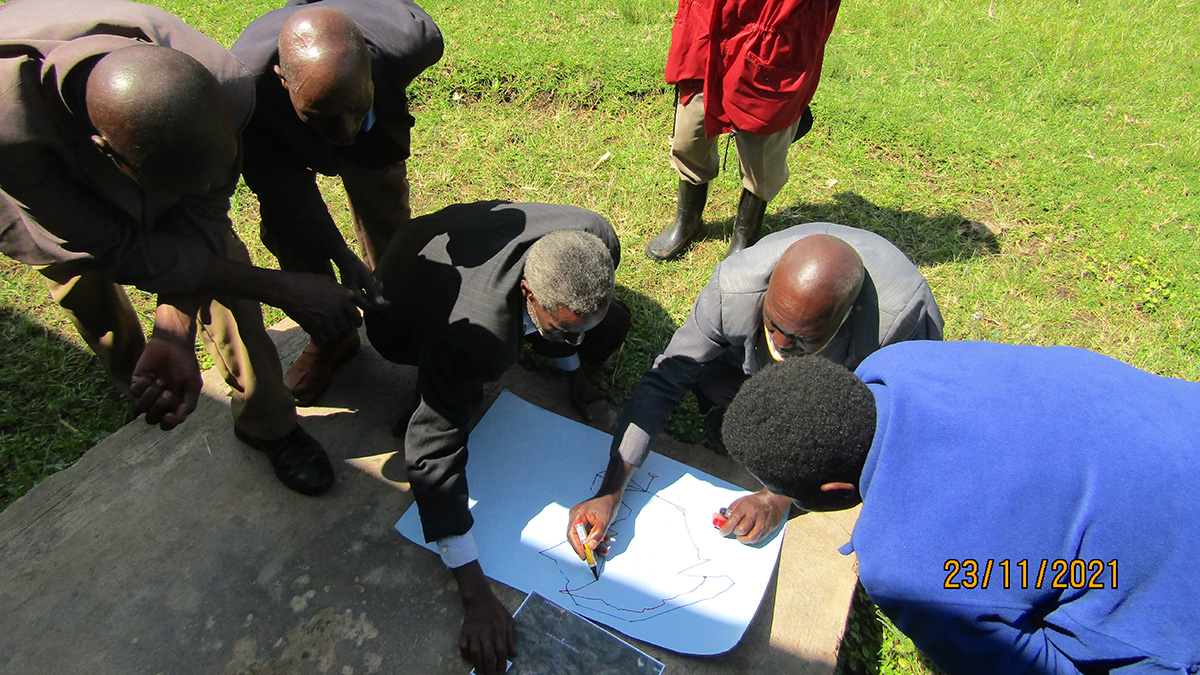Laboratory experiments show that earthquakes may have helped early life evolve in an oxygen-free world.
News
Radiocarbon’s Blast from the Past
Radiocarbon dating is a cornerstone of climate and archaeological sciences. But the method is under threat as fossil fuel emissions negate a useful signal from atomic tests.
The Amazon Rain Forest Can’t Keep Up with Droughts
Droughts in one region of the Amazon can lead to less moisture elsewhere, and trees may not adapt quickly enough to survive.
Proyecto de ciencia comunitaria ayuda a rastrear los riesgos geológicos en Uganda
Un proyecto comunitario en las tierras altas de Kigezi está ayudando a identificar puntos calientes de deslizamientos de tierra e inundaciones y cómo los peligros están evolucionando.
Supervolcanoes Linger a While, Then Rush to Erupt
Geologists examined crystals in rock from four massive eruptions in the Chilean Andes.
Alaskan Glaciers Advance and Retreat in Satellite Imagery
Researchers tracked 19 maritime glaciers in Kenai Fjords National Park over several decades and found that tidewater glaciers tended to experience less ice loss than other types of glaciers.
Major Investment in Air-Conditioning Needed to Address Future Heat Waves
More than 80% of urban residents will need AC by the 2050s, but many of the world’s poorer countries may struggle to meet that demand.
Neighborhood Strategies Inform Boston’s First Urban Forest Plan
The city prioritizes equity and inclusion as it incorporates tree coverage into climate resiliency efforts.
Gigantic Jet of Lightning Mapped over Oklahoma
The most powerful gigantic jet ever recorded fortuitously appeared over a sensor array in Oklahoma, enabling scientists to map the structure of the phenomenon for the first time.
Unraveling the Mystery of a Rare Mineral on Mars
The discovery of tridymite in Mars’s Gale Crater triggered debate about the rare mineral’s origins. A research team recently suggested a scenario with explosive implications.










